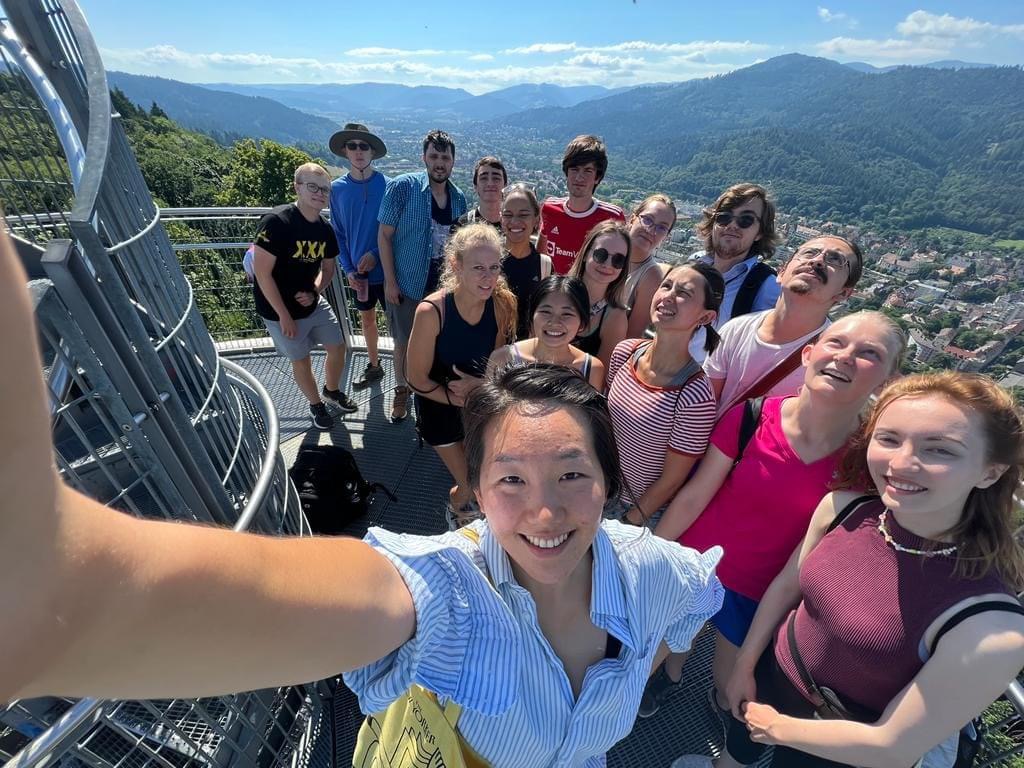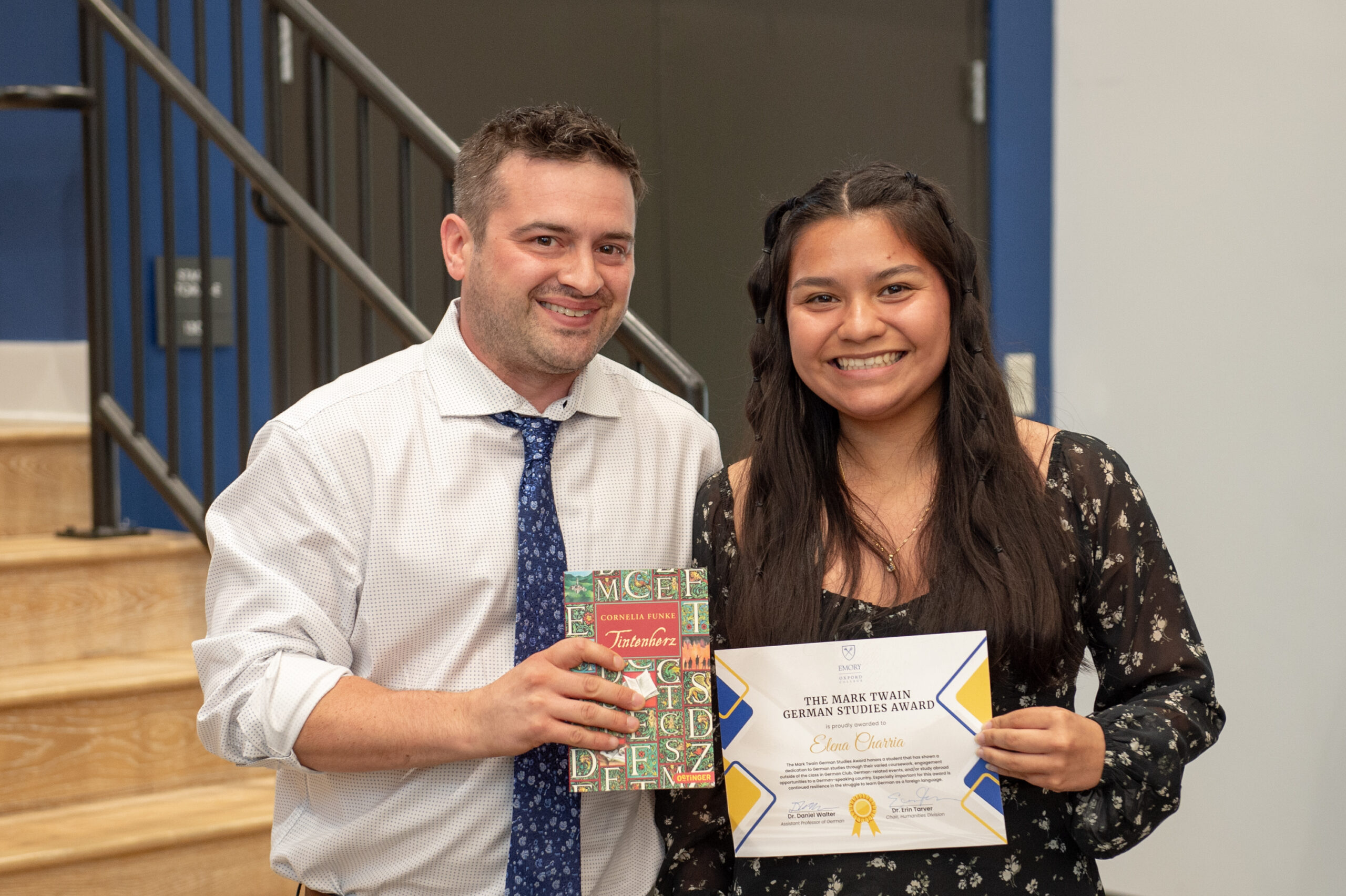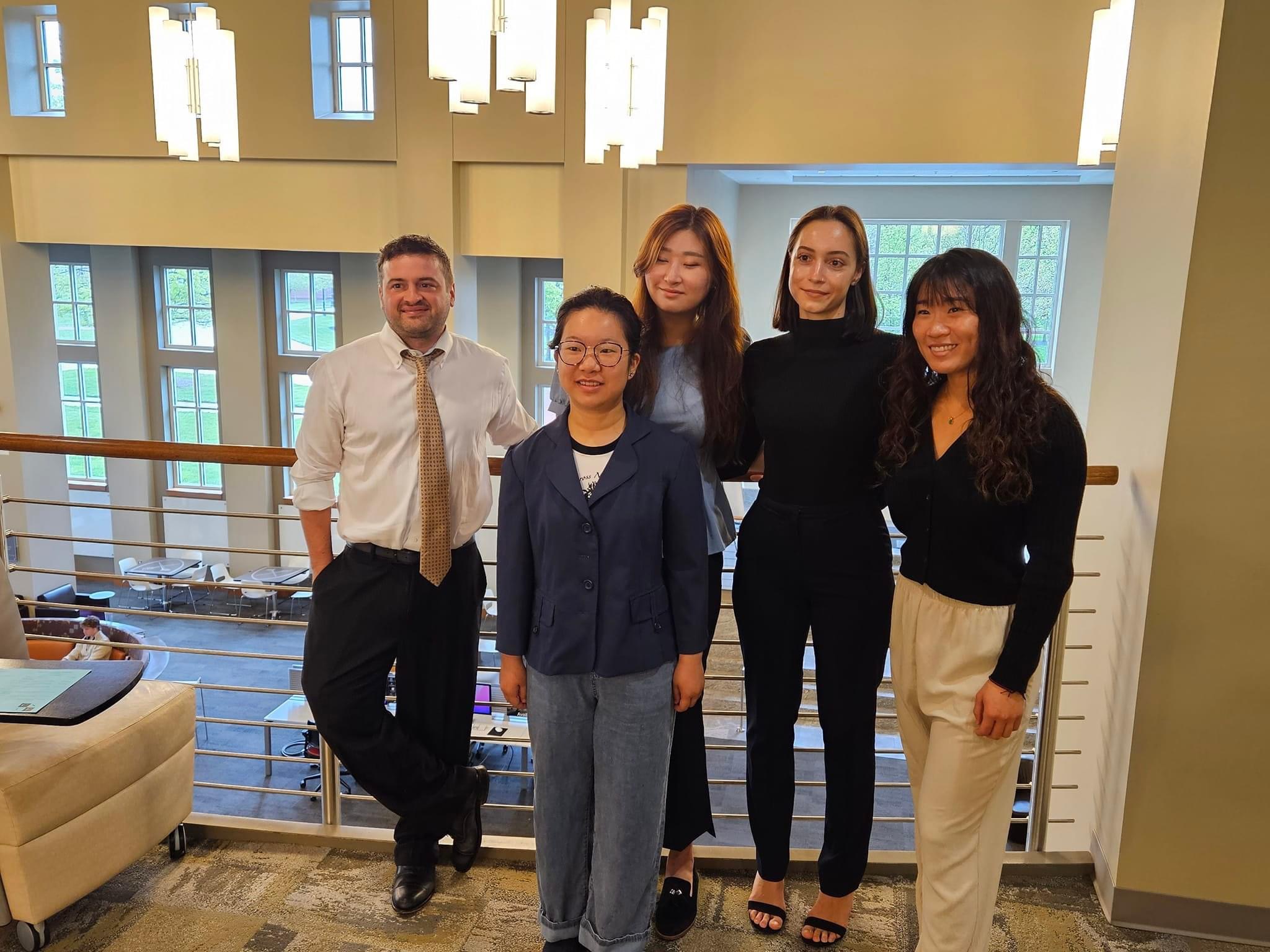ABOUT
As an educator, I have three goals for my students. First, I want to help them become successful language learners, critical thinkers, and global citizens. This requires that I utilize evidence-based research on (language) teaching to enhance student learning outcomes, teach students to identify, analyze, and understand patterns, and help students learn how to ask questions, not just look for answers. I think this last point is the one of the most challenging aspects for undergraduate students. For the most part, students are used to looking for the answers that their teachers have been asking them. It is my goal to get them to start doing the hard part, figuring out what questions they should be asking, and then understanding how they can go about answering their own questions with the tools and analytic skills we help them develop.
In order to do so, I need to create learning spaces that support student growth. This happens in a number of ways, but there are two things I would highlight. One is fostering a safe learning space, where students feel comfortable, even when engaging with difficult topics like racism, social injustices, and human rights issues. Safe does not always mean comfortable, as growth only comes with challenging who we are and what we think we know, but my classroom is a place where this discomfort can happen without judgment and with a classroom ecology of respect and mutual support. And two is providing space for reflection that allows students to observe their progress over larger spans of time, particularly when some learning, like language acquisition, is not apparent from one day to the next. By doing so, the sometimes minute, microgenetic changes in their understanding become clear and students can be cognizant of how much they have learned and developed, while simultaneously building up their confidence to overcome future challenges.
And finally, it is of utmost importance to me that students see me and my class as just the starting point of their growth. Therefore, it is necessary for me to open new doors to various opportunities to students by building connections between students and the material and facilitating professional relationships to that create networks of colleagues and mentors as they move into various careers.

Mentoring at Oxford college for me is an opportunity to engage in two important tasks. First, it allows me to unite the research side of my job with the educator side of my job by helping students learn how to do research. This comes in many forms. Sometimes students join projects I have already started, and sometimes they come to me with their own ideas, and I help them develop these into full-fledged research projects of their own. In both cases, I get to see students come to so many realizations about what research actually looks like, compared to what they thought it meant to do research. I believe that this part of the Oxford experience is an unbelievably rewarding, high-impact practice that gives our students real insight into what it means to be researchers and I love being there as they work through this process and come out on the other side with a different appreciation of the rigor it takes to do good work.
Second, mentoring students gives me the chance to get to know my students so much better than I get to inside the classroom. It allows me to help them connect their personal passions with their career and professional goals, and to show them that there is not only no “right” path for them to get to where they want to be, but also many paths, and these paths are not straight lines from here to there. I have truly enjoyed watching students find ways to follow what they are passionate about.
I think my favorite conversation starter is always when a student comes to me and says, “I love taking German, but I want to be a doctor” and I get to say, “You know that there are doctors in Germany, right?”
OR
“I love linguistics, but I want to be a doctor” and I get to say, “You know there are doctors who help people with language problems, right?”

Throughout my academic career, I have pursued three lines of inquiry that have helped me define my scholarly trajectory as one rooted in a multidisciplinary field of linguistics. The first line of inquiry centers on the representation and processing of foreign language morphosyntax from instruction. Specifically, how do second language learners acquire the ability to use grammatical structures over time and what is the relationship between declarative, explicit understanding and proceduralization (the transformation of explicit knowledge into implicit knowledge) of linguistic information? In my second line of inquiry, I take a multidisciplinary approach to understanding second language acquisition (SLA), which in and of itself requires a commitment to ask how I can connect with people in other fields, how their epistemologies, methodologies, and questions can inform my own work, and how my understanding and research training can impact other fields. These interdisciplinary connections fuel my own understanding of language related research, as they often spark new avenues and ideas. And third, I have continued to gain interest in how minority and intersectional issues of identity are represented, recreated, and integrated through second language pedagogy. This approach allows me to focus on a central theme, specifically morphosyntactic development in SLA, while exploring new and exciting questions related to intersections of language related phenomena.
